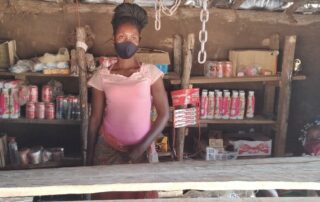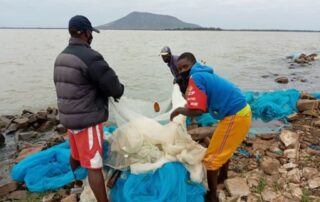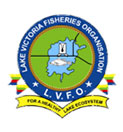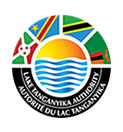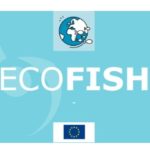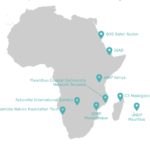Achievements
To promote sustainable small-scale fisheries in Cahora-Bassa and Mogoe Districts in Mozambique, the ECOFISH-ADPP project empowers and builds capacity of fishing communities, improves integration of fishing groups into fish value chains and increases access to drinking water and sanitation. In this context, the project provided the following supports to date:
1. Empowerment and capacity of fishing communities for sustainable resources management
- 531 fishers were trained in community-based natural resources and 33% are engaged in decision making
Activities
- Promoting stable co-management structures by providing training on natural resources management, negotiation and conflict resolution to Community Fishery Councils.
- Provide training on sustainable fishing practices & climate-resilient livelihoods to approximately 500 fishers, out of which 30% are women.
- Connect the fishers to potential buyers and to microfinance institutions.
- Establish processing and sales centres in 2 strategic locations equipped with post-harvest handling and conservation equipment powered by solar energy.
Expected Outputs
- Empowering the fishing communities and increase capacities on sustainable resources management.
- Strengthen 6 existing Fishers’ Clubs and create 4 new ones.
- Strengthen 2 existing Fishery Councils and create 2 new ones.
- Creation of a Fishers’ Forum which will contribute to strengthen the economic and social sustainability of SSF communities.
- Increase sales volumes and incomes of target fishers by providing processed products.
